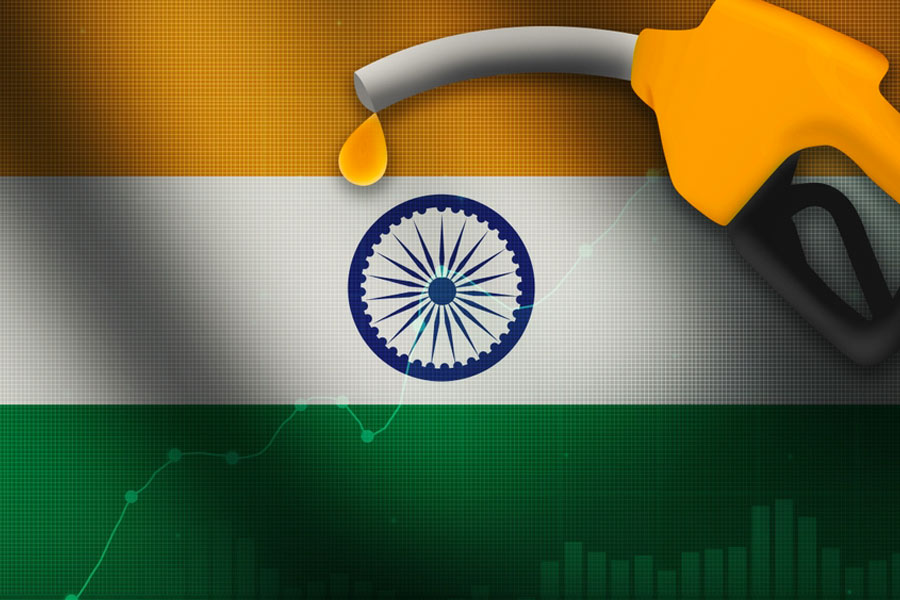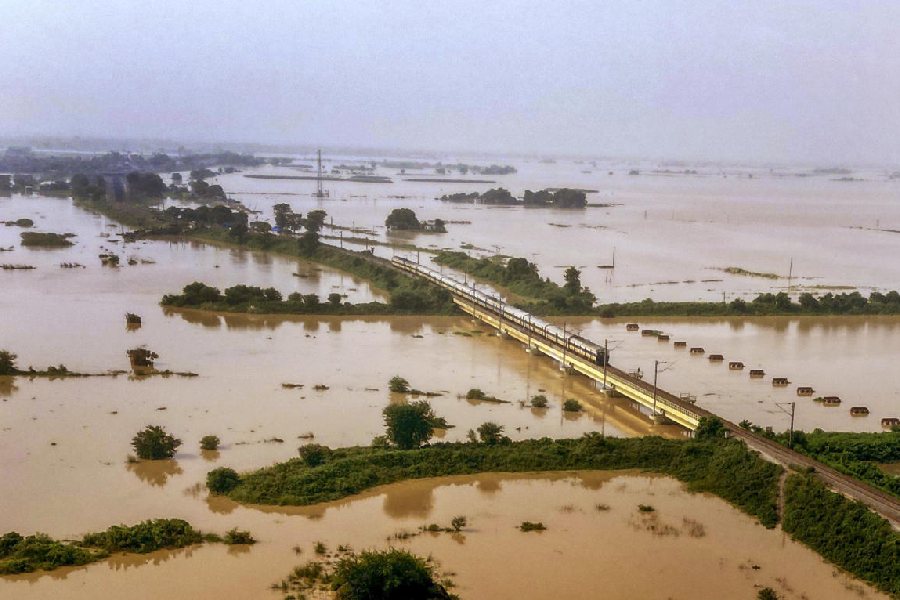State-owned fuel marketing companies are likely to revert to daily revision in prices of petrol and diesel only when international oil prices stabilise below USD 80 per barrel on a sustained basis, industry officials said.
Three state-owned fuel retailers -- Indian Oil Corporation Ltd (IOCL), Bharat Petroleum Corporation Ltd (BPCL) and Hindustan Petroleum Corporation Ltd (HPCL) -- which control roughly 90 per cent of the market, have kept petrol and diesel prices on freeze for a record 20th month in a row.
This is despite the raw material (crude oil) cost surging last year, leading to heavy losses in the first half of 2022-23 fiscal year before easing rates propelled them to profitability.
"There is considerable volatility in the international oil market and prices fluctuate wildly," an official said. "Oil companies can cut prices by Re 1 per litre and everyone will applaud. But when international oil prices go up, will they be allowed to raise rates remains in doubt." India is the world's third largest oil consuming and importing nation. It imports more than 85 per cent of its oil needs and hence domestic pricing is linked to international rates.
The basket of crude oil that India buys has averaged $83.42 per barrel in November, down from $90.08 of October and $93.54 of September.
While at current prices, oil companies are making some money on petrol, diesel -- the most consumed fuel accounting for almost 40 per cent of all petroleum products consumed in the country -- but it has been in a "touch-and-go" scenario in recent weeks, another official said. "On some days there is profit on diesel but on other days there is loss. There is no consistent trend." Three retailers had been recouping losses they incurred for holding rates when crude oil prices shot through the roof last year. In May, international oil prices and retail pump rates had come at par, but the subsequent surge widened the gulf between cost and price realised.
"For oil companies to revert to daily market based price revision, oil prices will have to come below $80 on a sustained basis," an official said.
Petrol and diesel prices have been on a freeze since April 6 last year. Petrol costs Rs 96.72 a litre in the national capital and diesel comes for Rs 89.62 per litre.
The three firms made bumper profits in April-September -- first half of the current fiscal -- but considering the low earnings of last year, they are yet to recoup all losses, officials said.
Consider this, IOCL posted a net profit of Rs 26,717.76 crore this year as compared with a full year profit of Rs 8,241.82 crore in 2022-23 (April 2022 to March 2023).
In 2021-22 (considered a normal year), the company had posted a profit of Rs 21,762 crore for the full year. Considering that to be a normalised earnings, for two years (2022-23 and 2023-24), it should make about Rs 42,000 crore.
In one-and-half years (April 2022 to March 2023 full fiscal and April 2023 to September 2023), the company earned about Rs 35,000 crore.
Similar is the situation with BPCL and HPCL.
"Not all of the losses have been recouped," an official explained. "When prices were high in the immediate aftermath of Russia's invasion of Ukraine, there were huge losses. These losses were trimmed in the second half of 2022-23. In the current year, the losses are being recouped by making profits when oil prices are low." International oil prices have firmed up since August, leading to margins of three retailers turning negative again.
The OMCs' marketing margins -- the difference between their net realised prices and international prices -- have already weakened significantly from the high levels seen in the quarter ended June 30, 2023 (Q1 fiscal 2024). Marketing margins on diesel turned negative since August while margins on petrol have narrowed considerably over the same period as international prices increased.
Except for the headline, this story has not been edited by The Telegraph Online staff and has been published from a syndicated feed.











